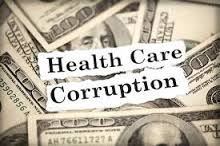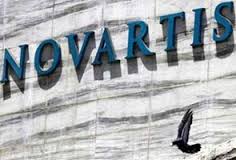Anti-Kickback Laws, False Claims and Recidivists
 Companies which fall under the enforcement axe usually learn from their mistakes. All it takes for most companies is the scrutiny of the federal government and then companies react with the motto – “never again!” But what happens if such change does not occur, or for some reason, you company is investigated again.
Companies which fall under the enforcement axe usually learn from their mistakes. All it takes for most companies is the scrutiny of the federal government and then companies react with the motto – “never again!” But what happens if such change does not occur, or for some reason, you company is investigated again.
The oil industry has experienced that in the FCPA arena. As a result, many oil industry compliance programs are the best in the land with innovative and comprehensive compliance procedures.
The pharmaceutical and medical device industries has plenty of examples of this phenomena. Recently, Novartis fell under the axe for a second time for False Claims Act violations. In fact, the government filed two separate cases in one week against Novartis in April of this year. These two lawsuits filed by the Us Attorney’s Office for the Southern District of New York were filed within three years of an initial lawsuit against Novartis alleging violations of the Anti-Kickback and False Claims Act laws.
The second lawsuit alleged that Novartis paid kickbacks to doctors in exchange for prescribing Novartis pharmaceutical products. The federal government intervened in a False Claims Act case filed by a whistleblower in 2011, relying on the qui tam provisions of the False Claims Act.
In the first case, the government sued Novartis for allegedly paying kickbacks to pharmacies that were disguised as rebates and discounts in exchange for the pharmacies switching patients from a generic drug to Novartis’ drug.
Interesting, Novartis allegedly violated its own internal policies concerning speaker programs, which require that the programs have an educational purpose. Instead, Novartis violated the Anti-Kickback law by paying doctors to speak about certain drugs at lavish social occasions or get togethers of doctors. The payments and lavish dinners were kickbacks to the speakers and attendees to influence them to write prescriptions for Novartis drugs.
In some instances Novartis made payments to doctors for purported speaker programs that did not occur. Thousands of programs were held all over the country at which the doctors who participated spent little or no time discussing any educational issues. Some speaker programs were held on fishing trips off the Florida coast, or lavish dinners. For example, a July 5 dinner for three, including the speaker, at a Washington, D.C. restaurant cost $2,016, or $672 per person. Novartis also paid a $1,000 honorarium to the speaker for this program. At another program held on Valentine’s Day in 2006, Novartis paid $3,127, for a meal for three people at a West Des Moines, Iowa restaurant, or $1,042 per person.
The government also cited internal documents at Novartis which demonstrated that its so-called speaker program had a high return on investment, resulting in doctors increasing the number of prescriptions for Novartis drugs. Novartis spent nearly $65 million over ten years and conducted over 38,000 speaker programs for just three of its drugs.
 The government alleges that Novartis was well aware of the operations of its speaker program and failed to determine whether the program was being used for illegitimate purposes.
The government alleges that Novartis was well aware of the operations of its speaker program and failed to determine whether the program was being used for illegitimate purposes.
If true, the government’s filings lay out a damning picture of non-compliance by a global pharmaceutical company. This systemic picture will require significant change – the question is whether the company has the ability and desire to address the evident problems.















